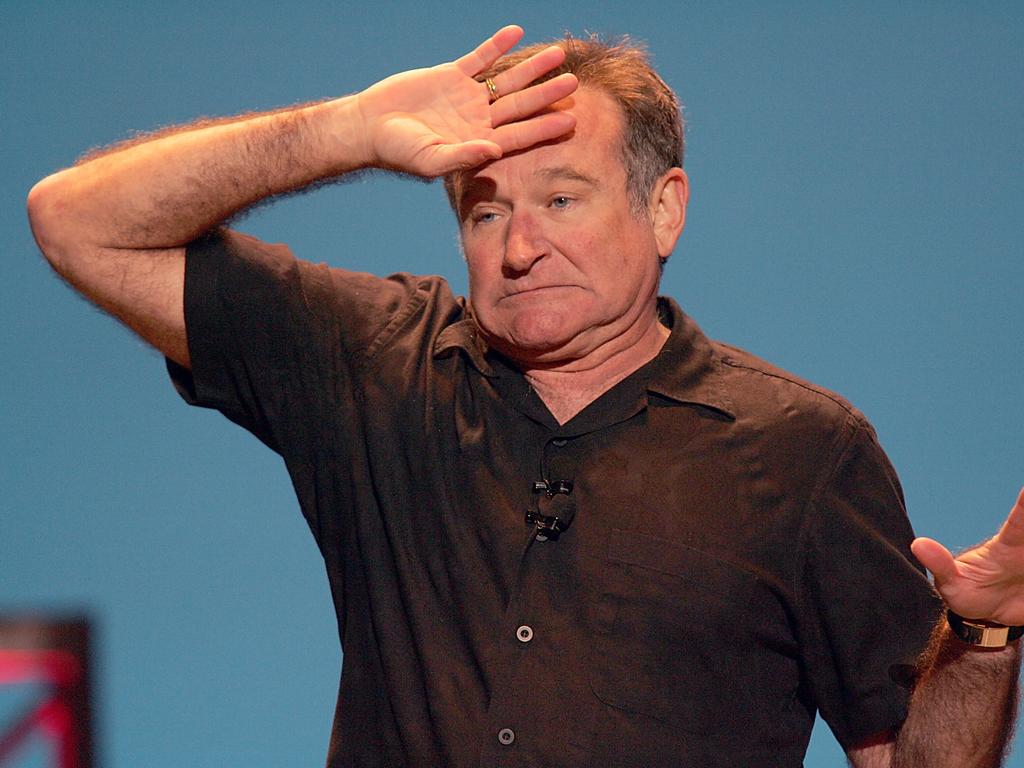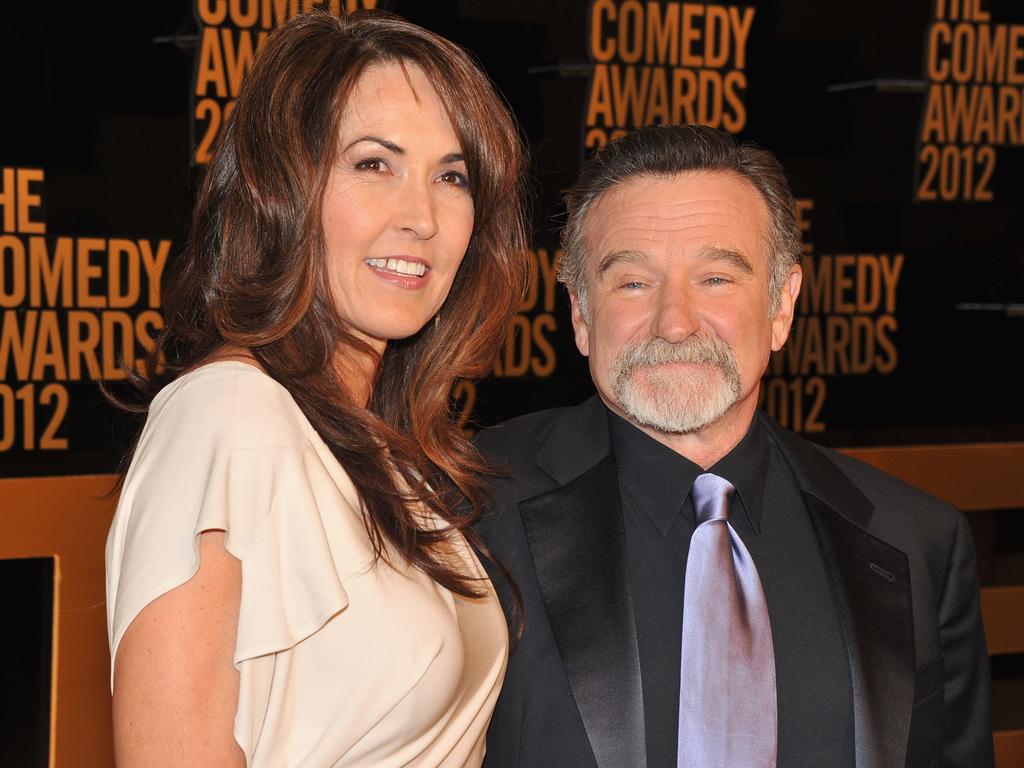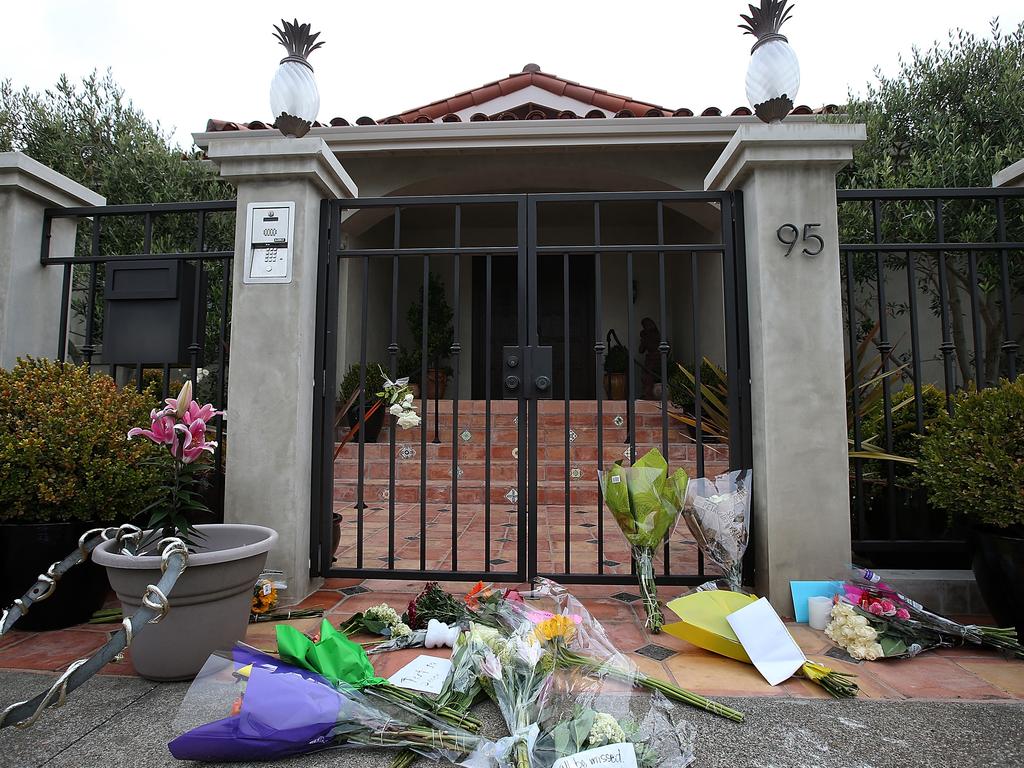Robin Williams’ tragic final days laid barre in upcoming documentary, Robin’s Wish
His suicide shocked the world in 2014, and now the true toll of Robin Williams’ torment is being uncovered in a new documentary.
In summer 2014, Robin Williams’ death by suicide shocked the world. The comedic genius who voiced Aladdin’s genie in the Disney cartoon and donned drag for Mrs. Doubtfire – a beloved ball of positive energy – had been privately tormented.
His fans didn’t see it coming. The legendary funnyman, who was 63 years old, was still in the public eye, having starred in Night at the Museum: Secret of the Tomb and David E. Kelley’s TV series The Crazy Ones that same year. On talk shows, he was as witty as ever.
Reports at the time said his August 11 death at his home in Paradise Cay, California, was the result of severe depression, and that the actor had been diagnosed with a mild case of Parkinson’s disease several months earlier.
But after an autopsy, the actor’s family learned that Williams had been suffering from an incurable neurological disorder called Lewy body dementia that every doctor had missed. Besides hindering thinking ability, it can cause hallucinations and dangerously acting out dreams while sleeping.
A new documentary, Robin’s Wish, out September 1 in the US, documents the actor’s final days as his worsening condition alarmed loved ones and colleagues.
RELATED: Robin Williams’ son opens up on his dad’s struggles

“We had unknowingly been battling a deadly disease,” Williams’ widow Susan Schneider Williams, 56, says in the documentary.
“A disease for which there is no cure. The devastation on Robin’s brain from Lewy bodies was one of the worst cases medical professionals have ever seen, yet throughout all of this his heart remained strong.”
Williams’ behaviour, friends and family members say, first began to deteriorate two years before his death.
“I would say a month into the shoot (of Night at the Museum 3), it was clear to me — it was clear to all of us — that something was going on with Robin,” director Shawn Levy says in the doco.
“That’s an experience I’ve not spoken about publicly ever. We saw that Robin was struggling in a way that he hadn’t before to remember lines and to combine the right words with the performance.”
Comedian and friend Rick Overton recalls in the film that, around the same time, Williams began to skip his regular stand-up gigs at a venue near his home, the Throckmorton Theatre.
“There were a couple of shows where I was expecting Robin to be there and he didn’t make it, for one reason or another,” Overton says.
RELATED: Robin Williams was ‘emotionally crumbling’ on his last film

His neighbour John Hepper, who frequently saw Williams out on walks with his dog, was concerned about the actor’s rapidly changing physique.
“His ribs were actually showing (through his T-shirt),” Hepper says in Robin’s Wish. “I grabbed his skin. ‘Robin, you’re really getting thin.’ He said, ‘Yeah, boss, I’ve gone to the doctor, but they don’t know what it is.’”
Medical professionals were stumped, and one doctor eventually diagnosed him with Parkinson’s due to Williams’ shaking hand. He insisted it was “early-to-mild,” Susan says, and that he could still have “10 good years”. They told him he didn’t have dementia.
“I knew he wasn’t buying it,” his wife says.
All the while, Williams’ mental acuity and quality of life continued to slip.
“The degree to which the paranoia came in was so drastic,” Susan says. “He’s going from room to room and literally watching me. He’s making a lot of phone calls and texting people and questioning … my loyalty to him.”
The night of Williams’ death, his neighbour Hepper spotted him outside with his dog.
“Boss, I really need a hug,” he remembers Williams saying. “So, I gave him a hug, and he started to cry.” Hepper put his arm around the actor’s shoulder and spoke in depth with him for 15 minutes.
“He talked about family, and what was going on in his life and some things I think he felt that I would keep private,” he says.
Back at home that evening, as his wife was headed to bed, Williams said, “Goodnight, my love,” and went into his office with his iPad. Susan was thrilled because her husband hadn’t been reading lately.
The next morning, when Williams’ assistant tried to enter his office, she found the door was locked and quickly texted Susan: “He’s not up. What should I do?” Susan knew he was gone.
The police arrived and found Williams dead with no note.

Despite living the worst day of her life in the spotlight of international media, Susan cherishes her husband’s memory as a generous man who tried to make the world better, not only through performance, but also charity and many USO trips. His wife recalls a conversation with Williams about what he wanted his legacy to be.
“For Robin, it was that he wanted to help people be less afraid,” she says.
This article originally appeared on the NY Post and was en reproduced with permission



